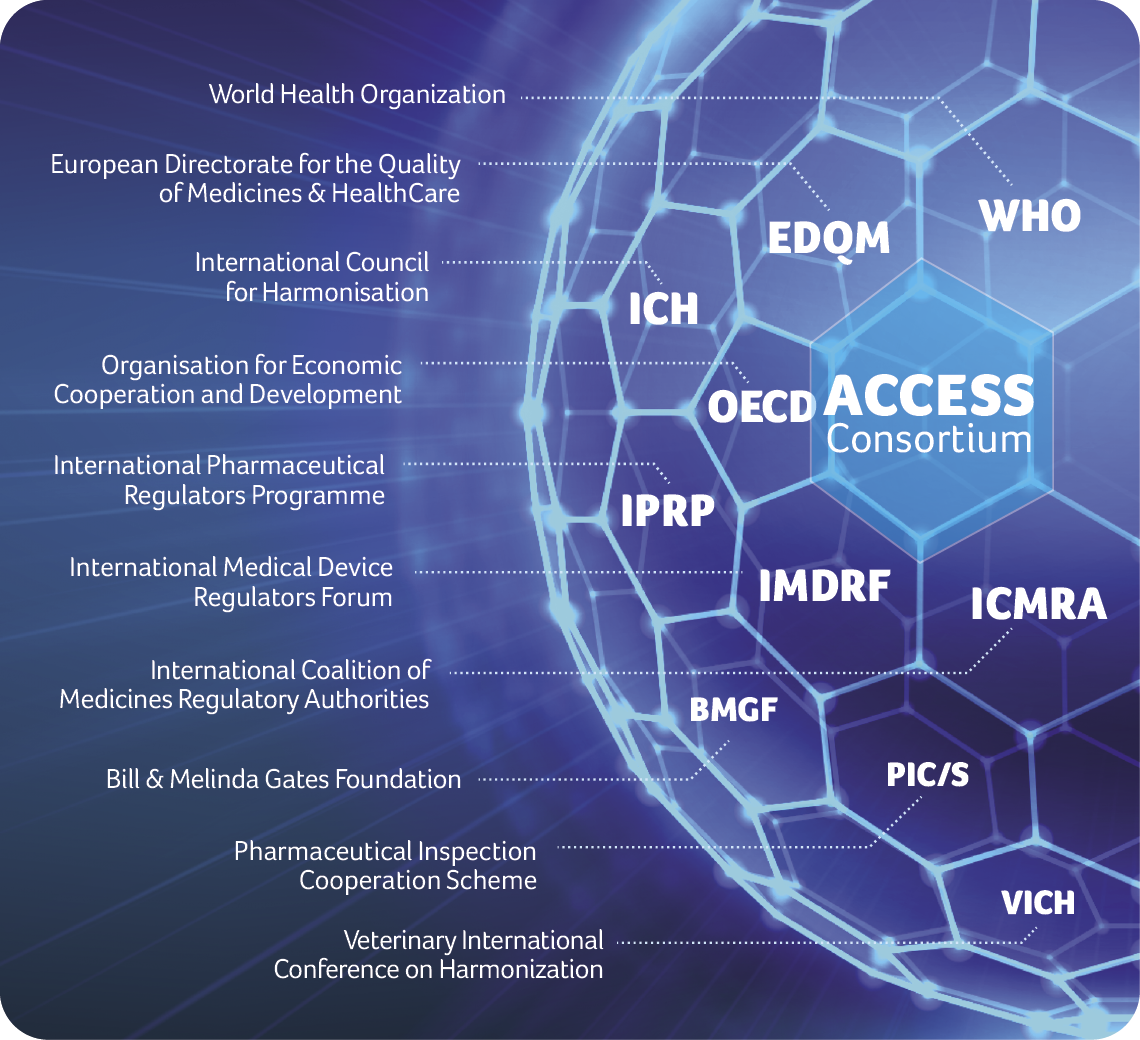- Get directions
- Leave a review
- Claim listing
- Bookmark
- Share
- Report
- prev
- next
- Tuesday, April 23, 2024 @ 11:00 am
Regulation of medicinal products and medical devices is vital to ensure the safety, efficacy and quality of products. Stable and predictable regulations and international collaboration between regulators and biotechnology companies allow breakthrough technologies and therapies to be deployed quickly and effectively, ensuring that patients can access the best possible care. Switzerland is part of the Access Consortium which recognizes the urgent need for harmonization of the evolving international regulatory framework in order to facilitate decision-making and accelerate the introduction of innovative products.

Jörg Schläpfer
Swissmedic | Head of Staff and external relations

Julia Djonova
Swissmedic | Head of the Advanced Therapy Medicinal Products (ATMP) department
The ever more rapid pace of change in medicine, science and technology and the complexity of innovative products pose challenges for regulators, ranging from different product classifications and legal requirements to the ability to make decisions when assessment criteria are not well defined. Although the overriding priority of regulators is to protect patients and enhance public health, an authorization decision for breakthrough therapies, such as advanced therapy medicinal products (ATMPs), is often made before all the usual data is available. The implementation of any new model must always take account of patient safety, even if the medical need is high.
Benefits of collaboration, convergence and regulatory reliance
The need to address various risks so that the safety and efficacy of innovative products can be adequately assessed is widely accepted.¹ Minimizing risks relies on close collaboration between regulators, manufacturers, marketing authorization holders, experts in fields such as nanotechnology, biotechnology, pharmacogenomics, and healthcare professionals and patients.
Rapid approval of an innovative product, similar therapies, platforms or processes can only be achieved through flexible procedures and the sharing of information between regulators. This may include the classification of products, clinical trial results, market authorization assessment criteria and decisions, plus the exchange of postmarketing information and use of data from registries.
The COVID pandemic highlighted how challenging it can be for applicants to meet the different technical requirements in their respective countries, and the difficulties for regulators to accept documents that did not meet specific local requirements. Fast yet responsible regulatory decisions were the result of an unprecedented exchange of knowledge and agreements on specific approval requirements between authorities and stakeholders. This international cooperation enabled the establishment of common criteria for approving mRNA-based vaccines.
Although there is currently no binding framework at either national or international level, collaboration between regulators could help to provide developers with harmonized international requirements. Specific guidelines are now being developed, for example, within the framework of the International Council for Harmonisation of Technical Requirements for Pharmaceuticals for Human Use (ICH), the International Coalition of Medicines Regulatory Authorities (ICMRA), the Conference of Drug Regulatory Authorities (ICDRA) or the International Pharmaceutical Regulators Programme (IPRP), of which Swissmedic is a member.²
Swissmedic’s cooperation with international organizations/initiatives
Harmonization of standards and scientific principles or procedures in different national legislations can bring many benefits, such as reducing animal testing or avoiding unnecessary duplication of clinical trials in humans without compromising safety and efficacy. This is particularly important for rare diseases, which require highly harmonized regulation as reliable data is difficult to collect and results are difficult to confirm.³
One instrument that will become increasingly important in the near future is the ability to use Real World Evidence (RWE) data. Decisions for most approved ATMPs or orphan drugs are based on non-randomized single-arm clinical trials, but have post-marketing observational studies as a prerequisite. National legislation should be harmonized to take account of RWE, and the possibility of sharing and incorporating data from this source or the use of AI should be considered.

Rethinking traditional approaches to life sciences regulation
In recent years, numerous innovative products have been made available to patients, particularly in the fields of oncology, genetic or metabolic diseases. There has been rapid development of “personalized” therapies that aim to improve the stratification and timing of healthcare by using biomarkers at the level of molecular pathways, genetics, proteomics, and metabolomics.⁴
In order to provide sufficient support for researchers and meet the expectations of the public, Switzerland has set itself the goal of promoting the early market launch of innovative medicinal products and establishing Switzerland as a research and business location by 2026, with federal measures to promote biomedical research and technology.
As the regulatory and supervisory authority for therapeutic products, Swissmedic is aware that patient-centered medicine requires a new level of collaboration between industry, academia, patients, regulators, and reimbursement institutions. Initial measures have been implemented by expanding scientific advice with a regulatory and scientific focus. Swissmedic also operates an Innovation Office, which is present on site in the most important centers and at events to encourage active exchange of information on innovative products so that solutions can be found.
Current Swiss legislation already allows for rapid approval, such as fast-track assessment or conditional approval (e.g. postauthorization safety and efficacy studies). However, innovative medicinal products face numerous technological, scientific, ethical, and regulatory challenges, and the task is made more challenging by the lack of clinical standards and guidelines for data management, analysis and interpretation or a common understanding of alternative animal models for toxicology. It is important that collaboration is strengthened not only between national authorities but also at the international level.
Switzerland is in the process of updating its legislation on ATMPs so that therapies can be authorized more quickly. In addition, new regulatory models are being explored, such as the recognition of real-world data as supporting evidence⁵, flexible clinical trial designs (e.g. validated surrogate endpoints) or decentralized trials.
Regulatory harmonization in practice: the Access Consortium
The Access Consortium is a coalition of regulatory authorities which face similar challenges. It was renamed from the previous Australia-Canada-Singapore-Switzerland Consortium (ACSS) in October 2020, with the introduction of the UK. The new name reflects the group’s main objective of providing patients with timely access to high-quality, safe and effective therapeutic products in member countries.
The group recognizes the urgent need for an integrated approach, including criteria for the evaluation of new trends such as preclinical biostatistical models, new manufacturing platforms, and the use of unified e-health data systems. Its objective is to promote interdisciplinary scientific discussions on innovative therapeutic concepts and technologies, to encourage harmonization of the evolving international regulatory framework for the evaluation of ATMP applications, and to develop future synergies for work-sharing. The experience gained will facilitate harmonized decision-making and accelerate the market introduction of innovative products.⁶
The Access Consortium offers common pipeline meetings, product assessments (work sharing) and meets on a regular basis to exchange information on issues and challenges such as harmonization guidelines to better align the regulatory systems and reduce unnecessary duplication and differences. In June 2023, a dedicated Access ATMP Working Group was established. As there are different legal provisions and definitions for ATMPs, a comprehensive exchange is crucial.
Swift access to innovative medicines tailored to patients’ needs
On the one hand, patients urgently need life-saving medicines; on the other hand, knowledge about the short- and long-term efficacy and safety of a product that has not yet been fully tested before or after approval, can only be built up through a constant exchange of information between all stakeholders involved. Only when life sciences companies have durable, predictable yet f lexible regulations in place, can breakthrough technologies and new generation treatments be introduced and distributed worldwide for the benefit of patients. The need to share data within an international framework has taken on an important dimension in view of the special aspects of innovative products.
References
1 Guideline on the risk-based approach according to Annex I, part IV of Directive 2001/83/EC applied to Advanced Therapy Medicinal Products (europa.eu) S.Schleidgen et al., What is Personalized Medicine: Sharpening a Vague Term Based on a Systematic Literature Review, 14 bmc med. ethics 55, 64 (2013)
2 WHO, Regulatory convergence & networks (https://www.who.int/teams/regulation-prequalification/regulation-and-safety/regulatory-convergence-networks)
3 Data Analysis and Real-World Interrogation Network (DARWIN EU®)
4 Personalised medicine EU Health Ministers in their Council conclusions on personalised medicine for patients
5 Swissmedic position paper on the use of real-world evidence
6 Concept paper for ACCESS CONSORTIUM ATMP working group